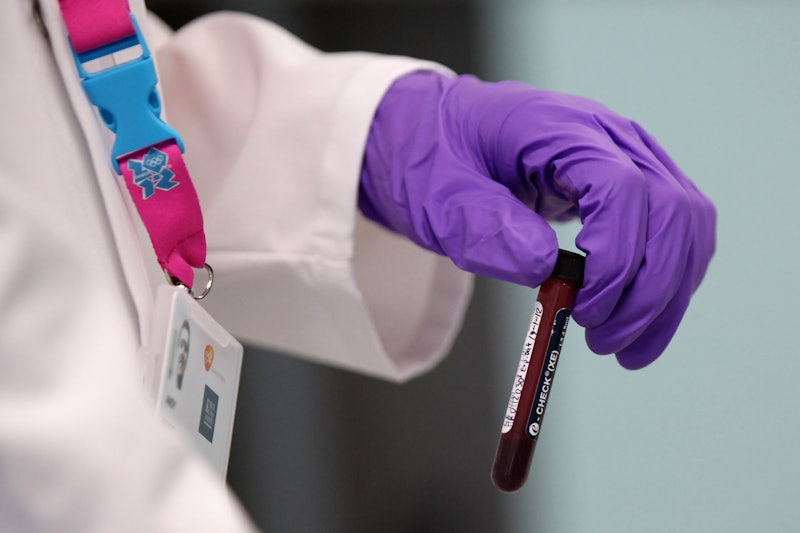News
A Major Breakthrough for Cancer May Be Coming
With Americans living longer, unfortunately more and more of us are eventually coming down with cancer of one type or another. However, a universal blood test for cancer, screening for all kinds of cancer at once, may be on the horizon. Researchers from the University of Bradford in the UK are developing a "Lymphocyte Genome Sensitivity (LGS) test" which can detect whether a person's body is currently facing the stresses of cancer, based on how sensitive white blood cells are to damage incurred by ultraviolet light.
Although there are already some tests to detect and even predict specific cancer, they work differently from the potential universal blood test. For instance, women with the BRCA1 and BRCA2 gene variants are at greatly heightened risk for breast cancer (40 to 70 percent chance, as compared to 8 percent chance of developing breast cancer in the general population). Tests for determining whether you have either of these variants have been available since the '90s, but they involve examining a patient's DNA for the related variants.
The BRCA variants may contribute to developing the universal blood test for cancer, though, because they helped researchers identify how women's blood differs between those who have breast cancer and those who do not. Women with both hereditary and non-hereditary breast cancer show the same "epigenetic signature" in their blood, suggesting that it's not merely your DNA but also how it's expressed in your body and environment in particular (its "epigenetics") that determines whether or not you actually come down with cancer.
A universal blood test for cancer would be hugely significant because, for many types of cancer, survival rates depend on detecting cancer early (and therefore treating it sooner). On the other hand, like genetic testing and "genetic discrimination", a universal blood test raises concerns that health insurers will use the technology to screen applicants and purge them from their risk pools before they come down with diseases and become expensive. On the other hand, treating cancers earlier may save insurers money — so hopefully the LGS ("universal") test will be widely covered by insurance as soon as it is recommended for widespread use.
Image: Giphy
